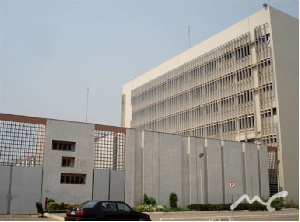As part of efforts to curb the volatility in the flow of foreign currencies in Ghana, the Central Bank has reiterated its directive effective from October 20, 2008, on the import and export of foreign currency.
The Bank restated this position based on the Foreign Exchange Act, 2006 (Act 723) as well as the provisions of the Anti-Money Laundering Act, 2008 (Act 749).
With effect from the said date, residents and non-residents travelling to Ghana are permitted to carry up to the equivalent of US$10,000 or its equivalent in any other monetary instrument.
According to the directive issued by the Bank of Ghana (BoG), travelers are entreated to make a declaration whether or not they are carrying amounts in excess of the stipulated amount at the point of entry.
However, amounts in excess of the US$10,000 or other foreign currency equivalent intended to be brought to Ghana or in transit shall be transferred through a bank or any other authorized dealer.
Failure to declare or failure to report the total amount that is being carried may lead to the seizure and/or forfeiture of all the currency or monetary instruments.
This may also subject a person in default to penalties and/or criminal prosecution.
Monetary instruments include coins, currency, travelers’ cheques and bearer instruments such as personal or cashier cheques and stocks and bonds.
Regarding capital flow management (CFM) measures, a US$1,000 limit on over-the-counter withdrawals from foreign exchange accounts (FEA) and foreign currency accounts (FCA), classified as a CFM, was rescinded in August 2014.
However, a limit of US$10,000 withdrawal per travel and annual transfer without documentation is still in place, the IMF’s is of the view that the removal of this restriction would be consistent with the its institutional view on CFMs.
Business News of Saturday, 4 May 2019
Source: goldstreetbusiness.com













